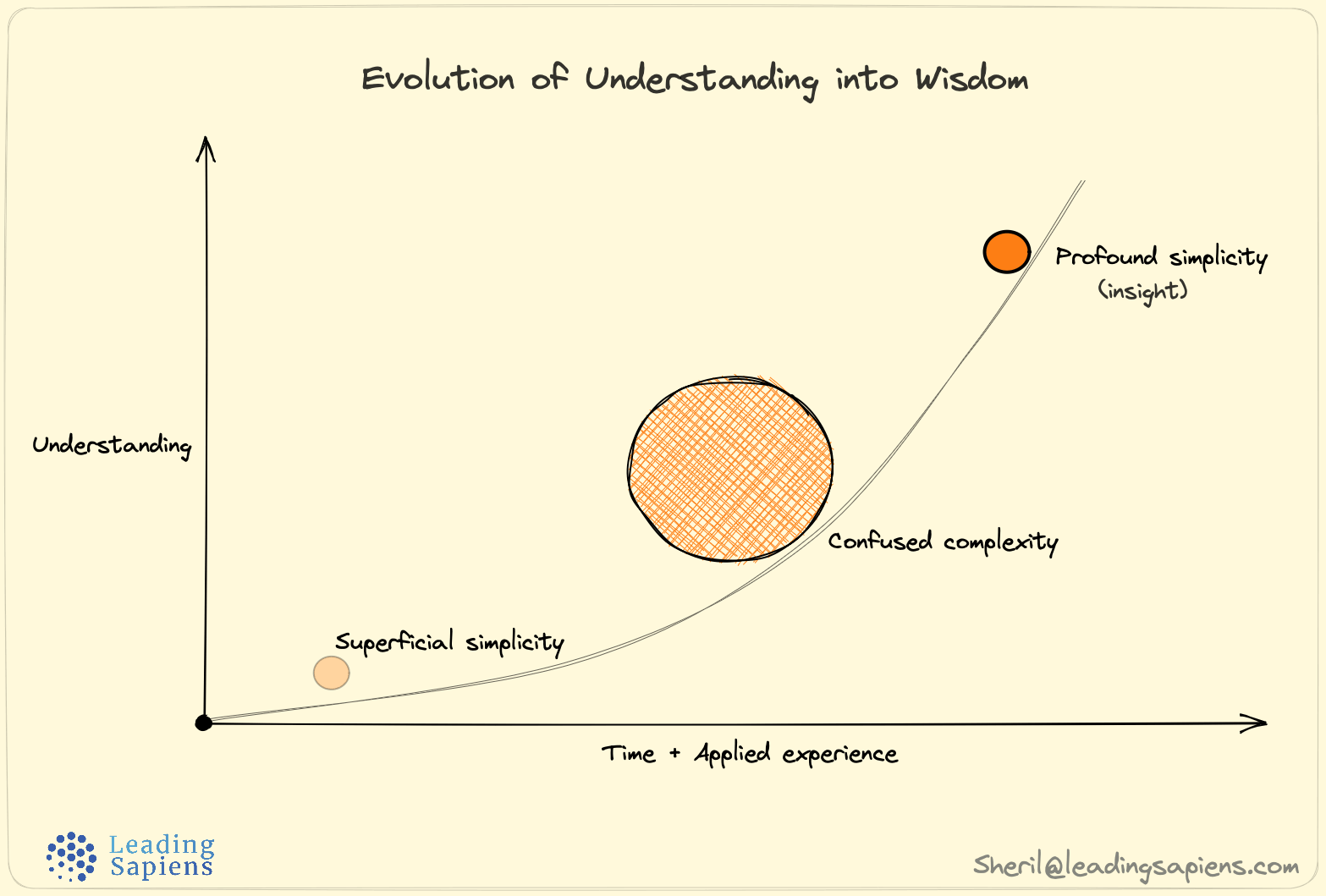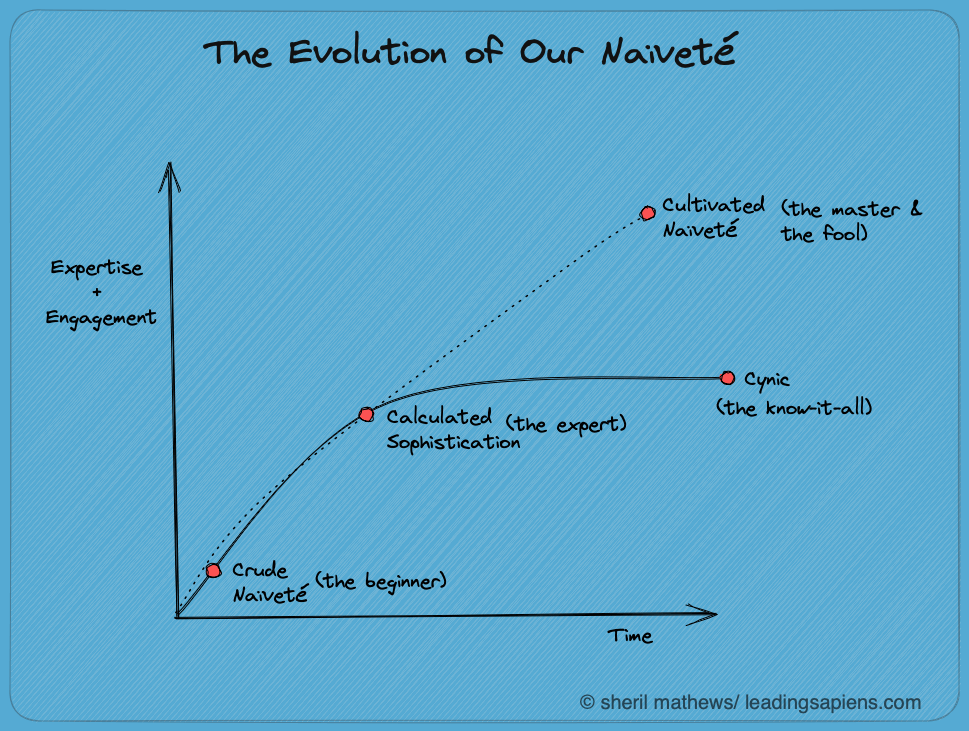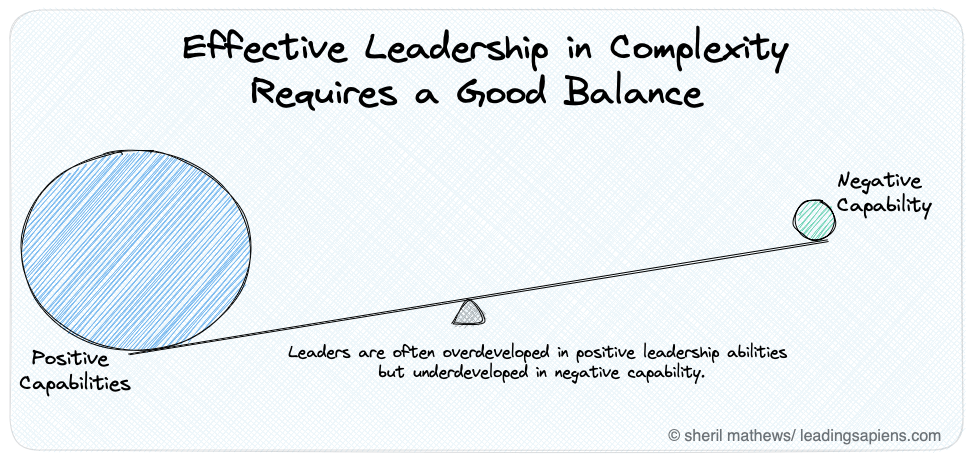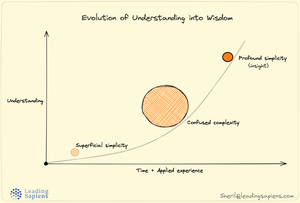Experts promise hacks and easy formulas, but actually succeeding at something often is much harder, sometimes even impossible. Is it just us, or are the experts plain wrong? Understanding how knowledge evolves into wisdom can help explain this discrepancy.
How understanding evolves
Consider this all too common scenario: You read a pretty legit business book. The formula is “proven” over many years and multiple engagements. But somehow it doesn’t work for your particular situation. And it’s not a lack of execution either, in fact you executed even better. So what’s the problem here? Is it you, or is it the formula?
Some call this phenomenon Insight Porn — much of the advice from so called “experts” when applied to our own situations doesn't pan out as promised.
Does this mean all experts are con artists? Some of them sure are, but there are also many that speak from actual experience. So why the disconnect?
One way to explain this discrepancy is Karl Weick's framework of how understanding evolves over time in three phases, going from:
- Superficial simplicity to
- Confused complexity, and finally to
- Profound simplicity
Mistaking profound simplicity for superficial simplicity
In his book Making Sense of the Organization, Weick uses the model to explain what he calls High Reliability Organizations. Many of the points Weick makes about HROs, can be extended to the personal realm as well — to understand our struggles with putting something into practice and actually succeeding at it.
Wisdom that emerges from confusion
I am not against simplicity per se, but I am against mistaking superficial simplicity for simplicity that is profound. That’s what I find fascinating about more effective high reliability organizations (HROs).
HROs strive for profound simplicity. They understand that the means to move toward profound simplicity is through doubting the completeness of their assumptions, through experimenting, and through entertaining a wider variety of possibilities. They realize that when they distrust their simplifications they will feel confused, but they also know that out of that confusion may come fuller understanding of what they face.
...
When we are confused we pay closer attention to what is happening in order to reduce the confusion. Later, all we remember is that this period of confusion was an unpleasant experience. What we often fail to realize is that we also learned a lot of details while struggling with the confusion. Those struggles and their consequences comprise learning, even if momentarily they don’t feel that way.
After a period of confused complexity, we often see that many of our initial simplifications were superficial, but we also see that a handful of those initial simplifications still hold true, although for different reasons than we first thought. And we also see that a handful of new simplifications help us make sense of the earlier confusion. These outcomes are the profound simplicities that are sometimes labeled ‘wisdom’.
Why superficial simplification doesn't work
If people examine mindful HROs, those organizations often appear to be no more complex than mindless organizations. What people miss, however, is the fact that mindful organizations have struggled through periods of confused complexity on the way to their profound simplicities (e.g. they looked closely at their own failures and have examined them with candor).
Mindless organizations, however, tend to settle for the first superficial simplicities they stumble onto, and as a result know neither themselves nor their environment very well. This by the way is why benchmarking seldom works. You can borrow the simplicities but you can’t borrow the confused complexity that gives meaning to the profound simplicity.
Without that background, you have no idea why the simplifications are profound, why they work, or what lessons they summarize. Hence, the borrowing is superficial. It fails to come to grips with either your own resources or the environment, and typically fails when implemented.
Better vs worse simplifications
Most people would agree that the business environment is complex. The complexity is due in large part to the fact that the environment is unknowable and unpredictable. In the face of all of this complexity, everyone simplifies the data they receive. But there are better and worse simplifications.
Better simplifications arise from deeper knowledge of the environment and deeper understanding of what the organization is and what it can do. That deeper knowledge develops when people attend to more things, entertain a greater variety of interpretations, differentiate their ideas, argue, listen to one another, work to reconcile differences, and commit to revisiting and updating whatever profound simplicities they settle on as guidelines for action.
….
But they don’t come easily. It takes a complex organization to see the value of confused complexity, to weather the messiness of confused complexity, and to have faith that confused complexity is not terminal but can lead on to the hard- won lessons summarized in profound simplicity. It also takes a complex organization to retain and value the diverse resources needed to spot which assumptions are superficial and to tolerate the mess when people contest different interpretations of what the organization faces.
— Karl Weick in Making Sense of the Organization
Where we go wrong and lose our way
When we read a book, take a course, or try to “hack” something, often we are trying to avoid the messy middle of confused complexity. Who wants to be confused after all? Confusion and doubt are seen as a sign of incompetence. But is it really?
Profound simplicity, and by extension clarity, can be arrived at only from our own experience and investment. It comes from grappling with ambiguity and doubt, and the back and forth of action and feedback. While I can borrow superficial simplicity or even confused complexity from someone else, making it simple at the level of profound simplicity requires investment of time, energy, emotions and risk on my part.
I’m not saying not to use help, but instead to check what our underlying expectation is. Because even the best guides and coaches cannot help us avoid the inevitable confusion that’s involved in learning and mastery. While the advice might be connected to their reality and experience, for you it is still an abstraction.
What might be profoundly simple to someone else looks superficially simple to us because we haven’t gone through the confused complexity required to get there. Only after it’s rooted in our own experience does it turn into actual insight.

Hacking wisdom
Although not always recognized, we often look for a “hack” to avoid anxiety, confusion, and most importantly lost time. Time that’s lost in "muddling” through, and not always knowing if we are heading in the right direction.
Paradoxically though, wisdom only comes if we’ve actually muddled through. Without the grappling and struggle of execution and trying to understand, it’s just “another cool idea” that we are aware of leading to the all too common declaration of “I’ve heard that before”, a cliche in other words.
Often, we are looking for insights minus the work required. And that's the ethos of pornography — engineering an artificial high but without the investment that’s required in the real thing. We want to dictate the process rather than submit to the process of learning, reflecting, unlearning, and eventually mastery. What was someone else's earned wisdom, turned into insight porn for us.
We would rather have the answers, instead of wrestling with existential questions. Struggling becomes a signal of incompetence instead of a method for building competence, so we try to avoid it and jump straight to the wisdom part.
Except there's one problem, and it's a cliche — you cannot borrow or buy wisdom, it has to be earned. Wisdom is not as portable as would like it to be — perhaps the very reason why it’s a rarity.
Related reading
- Being naive is considered a liability, so we over-index on sophistication and cleverness. But this can actually work against us in the long run. Naivete can in fact be a positive, if we know its various nuances and how it evolves.

- We tend to think of ability in positive terms, but often our ability to deal with uncertainty and ambiguity determines our success. The poet John Keats coined the term Negative Capability that is equally critical to our ventures as is any other skill.

Sources and references
- Making Sense of the Organization Vol II by Karl Weick.
- Weick built upon the concept of Profound Simplicity by Will Schutz.



